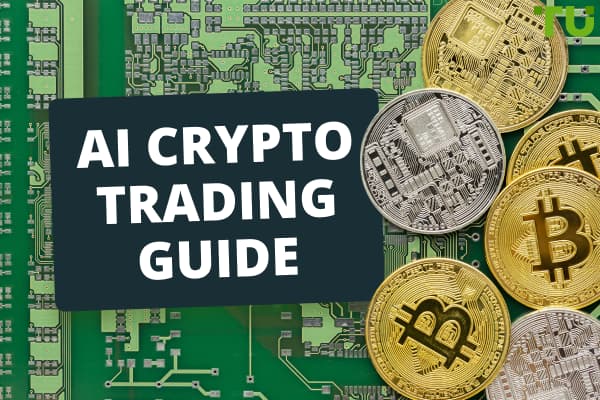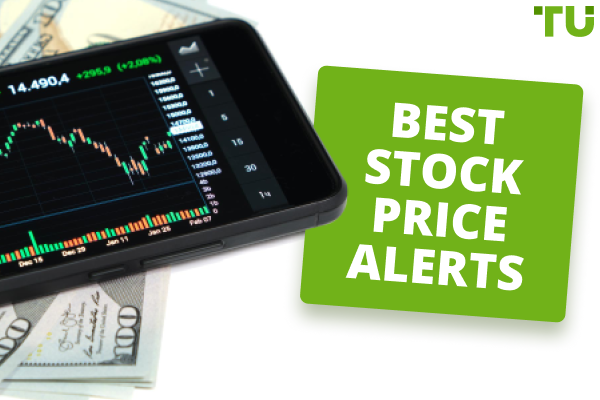Top 5 Best Paper Trading Apps For Stocks and Options

Best Paper Trading App is RoboForex
Best Paper Trading Apps For Stocks and Options according to Traders Union are:
RoboForex – Wide range of global markets, convenient strategy builder
eToro – Social trading features allow copying actual traders on demo accounts
eOption – Advanced analytical tools available for demo accounts
Interactive Brokers – Largest virtual balance ($1,000,000), rich educational resources
TD Ameritrade – Leading desktop platform, access to margin accounts
In this article, we will break down our top five favorite paper trading apps, their unique use cases, and some pros and cons about each one. Our goal is to help newbie traders, as well as seasoned veteran traders, improve their ability to trade through the use of a paper trading account. So much about being an investor comes down to research and self-education. Paper trading can provide that, along with valuable experience in trading the market.
Top 5 Best Paper Trading Apps For Stocks and Options
Below you will find all the information.
-
Can I use indicators and strategies on demo accounts?
Yes, demo accounts provide the same tools and features as live accounts to support analyzing indicators and backtesting strategies.
-
Do commissions apply in paper trading?
No, since no real money is being traded, commissions and fees are waived in paper trading mode.
-
How long do demo accounts typically last?
Most brokers offer unlimited demo accounts, but some may have time limits ranging from 30-60 days.
-
Do fill prices mirror the real market?
Paper fills may not always match real costs due to factors like slippage, but generally reflect current market pricing.
What is a Paper Trading App?
The term "paper trading" was used by traders from the "first wave" when the concept of automating the trading process was not yet on the horizon. Back then, trading was conducted "offline" without computers and software. Traders received information about quotes from newspapers or brokers' representatives, and records of transactions were made on a special board. Due to the absence of technical tools, fundamental analysis was highly regarded, which relied on these written records. This is where the term "paper trading" originated.
With the advent of computers, the internet, "paper trading" transitioned into spreadsheet editors, which allowed for quick data organization and chart plotting. Subsequently, demo accounts came into existence. Today, "paper trading" refers to demo trading on a virtual deposit in trading platforms with the ability to export transaction histories in various formats, including spreadsheets, for subsequent analysis.
Best Paper Trading Apps Comparison
| Broker | Best For | Trial Period | Markets | $ Virtual Limit | |
|---|---|---|---|---|---|
Automated trading |
30 days |
Forex (currency pairs), ETFs, index CFDs, oil CFDs, CFD on European and U.S. stocks, cryptocurrency CFDs, real securities |
2,500,000 EUR |
||
Beginners |
N/A |
US Stocks, Forex |
Unlimited |
||
Options |
60 days |
US Stocks and Options |
$100,000 |
||
International Markets |
30 days |
US Stocks and Options, International markets |
$1,000,000 |
||
Professionals |
14 days |
US Stocks and options, mutual funds, forex, futures |
$100,00 |
RoboForex
RoboForex is one of the top international brokers operating in the Forex and stock markets since 2009. The distinguishing feature of this broker is its accessibility to practically all global markets, combined with the ease and simplicity of its trading tools. The company strives to be as client-friendly as possible, thus maintaining its status as the industry leader.
The broker offers access to both the over-the-counter CFD market and the real securities market. On the OTC market, classic instruments are available, including currency pairs, commodities, stocks, and cryptocurrencies. Additionally, with the separate R StockTrader account, which provides a gateway to real stock markets, you can trade over 12,000 stocks, indices, and ETFs.
👍 Advantages of RoboForex:
•Instant registration. Gain access to a demo account in less than 1 minute by providing only your email;
•Access to the free strategy builder R StockTrader, allowing you to create strategies without coding knowledge and then refine them on a demo account;
•Cent accounts. After gaining experience on a demo account and testing your strategy, you can switch to a user account with minimal risk. Cent accounts enable real-market trading with trades denominated in cents, significantly reducing risk while enhancing your skills.
When you decide to transition to a user account, all you need is to deposit as little as $10 (or $100 for trading on stock exchanges), and you can start opening positions.
👎 Disadvantages of RoboForex:
•Regional restrictions. The broker does not serve residents of the United States, Canada, Japan, and some other countries;
•Insufficient account protection.
RoboForex is regulated by the FSC (Belize).
eToro Review
eToro is an international broker that positions itself as the largest community of traders and the largest social trading platform. It boasts over 30 million active traders and investors, along with a wide array of tradable assets, including stocks, cryptocurrencies, and ETFs. The key function of eToro is not just its role as a financial broker but also as a social trading network. Here, participants can interact, share strategies, ideas, opinions, ask questions, and copy each other's signals.
👍 Advantages of eToro:
•Licensing. The company holds multiple licenses, including ASIC (Australia) and FCA (UK), which are among the strictest regulators globally;
•$100,000 demo account. Provides the opportunity to test strategies;
•Copy trading on a demo account. Create an investment portfolio, test it, and then transfer it to a user account.
•Transparent and comprehensive trading statistics of signal providers available for copy trading.
👎 Disadvantages of eToro:
•eToro has a proprietary platform, which does not have a desktop version. This means that you cannot add custom indicators, scripts, or expert advisors;
•Limited technical analysis tools.
eToro is a platform suitable for those who lack sufficient knowledge for professional trading but are willing to earn from the signals of other traders. It also caters to those who want to showcase their skills and earn extra commissions from successful trades.
eOptions Paper Trading App – Best For Options
eOption is a brokerage firm that specializes in providing options trading services. The company has been in the stock market for over 15 years and enjoys the advantage of providing completely legal trading services in the U.S. stock market under the supervision of regulators such as FINRA and SIPC.
👍 Advantages of eOption:
•A $100,000 paper trading account, which is ample for executing trades without violating risk management principles;
•Access to unique analysis tools on the demo account, such as a probability calculator and an instrument to assess the effectiveness of modeled portfolios through flow pricing;
•Free access to analytics for novice investors on the demo account.
👎 Disadvantages of eOption:
•Exclusive focus on stock assets with an emphasis on options trading, which might appear complex to beginners.
eOption is a convenient platform for paper trading on the stock market, suitable for traders of all experience levels.
Interactive Brokers Trading App – Best for International Markets
If you want to get involved in forex and international markets, Interactive Brokers has the perfect paper trading account for your needs. With a thirty-day free trial, users can experiment with trading forex, as well as stocks and options. You get an impressive $1,000,000 in virtual capital to trade with, and Interactive Brokers offers a wealth of courses and educational materials that can help new traders get a solid footing in the world of investing. You can even access the platform’s immersive glossary to become more familiar with trading terms and expressions as you learn how to trade.
TD Ameritrade Trading App - Best for Advanced Traders
If you’re an established professional who just wants to use a paper trading account to test out new strategies, TD Ameritrade’s paper trading platform is worth looking into. Also known as “paperMoney”, this platform is a true virtual simulator designed for desktop use. Users get $100,000 in virtual funds and access to a margin account, which not many paper trading accounts offer. The platform is free for the broker’s existing clients, and non-clients can access a sixty-day free trial to really get a feel for the platform. If you want to test out a strategy on trading U.S. stocks, options, mutual funds, forex, or futures, this is the perfect platform.
Should I Try a Paper Trading App?
Absolutely! Paper trading apps are usually free or, at the very least, are offered on a free trial basis. There’s no real risk involved in paper trading, so you have nothing to lose! Still, let’s break down a few pros and cons of paper trading apps.
Paper Trading Apps Benefits For Beginners
There are many benefits to using paper trading apps from the perspective of a beginner.
These benefits include:
-
Beginners can have the opportunity to practice trading without having to risk any of their capital. This is vital for those who are new to trading, as it’s a wise idea to do research and practice with new strategies before you break into the real world of trading.
-
Paper trading can help build confidence for newbies by providing a safe place to trade without risking actual capital.
-
Paper trading is usually free, so newbies won’t have to worry about spending any money to learn more about investing in the stock market. It is worth noting that some paper trading accounts only offer free trials.
-
Paper trading provides an excellent, smooth transition from practice trading to real, live trading. Many brokers offer discounts or bonuses to paper traders who opt to open a real account.
Clearly, paper trading applications are very useful for newbies who want to learn how to trade without the risk of making real trades in the financial markets.
Paper Trading For Professionals
Beginners aren’t the only ones who can benefit from paper trading. Paper trading apps can be highly beneficial for professionals as well.
Here are a few reasons why:
-
There is no risk involved, which makes paper trading perfect for traders who want to develop new strategies and test them out before putting them in play.
-
Professionals can use paper trading for weeks or months to gather useful information about a new type of trading strategy and its approach to the market.
-
Traders can use paper trading to improve their trading skills and learn new techniques without taking any risks.
Paper Trading App Limitations
While paper trading apps are fantastic and very useful, they do have a few downsides.
These limitations include the following:
-
Market correlation tends to be an issue, as paper trading tends to fail to address the whole market’s impact on specific securities.
-
A lack of commission charges showing with paper trading and the impact of slippage on real trading orders placed can also become a problem. Failure to take into account these factors that can significantly affect net trading profits or losses means that paper trading may present an unrealistic, overly optimistic picture of how well a trading strategy may perform when applied in real-world trading.
-
Paper trading is very safe, but with that safety comes a lack of experience in emotional control. When paper trading, traders are aware that they’re not risking any real money, and so they don’t feel the emotional stresses that are commonplace when making real trades. Learning to master one’s emotions is a critical element in becoming a good trader, and paper trading simply doesn’t help in developing that skill. Even with these limitations in mind, it’s important to recognize that paper trading apps are risk-free tools that can be very helpful in many ways.
The three main objectives of a paper account
A paper account serves three primary purposes:
Familiarization with the platform and trading. Regardless of a person's trading experience, someone encountering a platform for the first time wants to test it out. They want to become acquainted with the tools, interface, and evaluate the platform's user-friendliness. A demo account allows them to do so without requiring verification or a deposit;
Experience accumulation. Traders can open an unlimited number of demo accounts and hone their skills across various assets. If they've learned something new in theory, they can immediately put their knowledge into practice;
Strategy testing. Before implementing any strategy on a user account, it must be tested using historical quote data in a tester. The tester aids in fine-tuning indicator settings and demonstrates the effectiveness of the trading system. The equity and backtest results obtained from a demo account serve as a starting point before launching the strategy on a user account.
A demo account (paper account) is primarily intended for testing and learning.
How To Get Started with Paper Trades?
All you need to do to get started with paper trades is to create an account, get verified if you are a U.S. resident, and access your paper trading or demo account. Your capital will be ready to go and you can start paper trading immediately. We recommend watching a few tutorials on how to actually trade stocks or your specific instrument of choice before getting started.
Choose Your Trading Strategy
Traders have the option of choosing between scalping, day trading, and swing trading. These are the main trading strategies of professional investors. Realistically, your trading style will partially depend on the amount of time that you have available and are willing to spend on trading. If you don’t want to spend all day staring at a screen, then swing trading or other long-term trading strategies may work better for you. If you want to be a full-time trader, then day trading is the obvious choice. The beauty of paper trading is that you can test out all types of trading strategies before actually committing any of your investment capital.
Placing Orders
Placing a paper trade order is the same as placing a real order on Webull. Simply search for your stock’s ticker symbol, choose “buy” or “sell”, input how many shares you want to buy or how much virtual money you’d like to invest, and then submit your order.
Consider Real Money Trading
When a trader finds, through paper trading, a trading strategy that they like and are comfortable using, and that appears to offer the chance to be a consistently profitable trader, then it's time to start thinking about switching to real trading. Webull is an excellent choice for traders who want to experiment with a demo account and then transition to a real account. Plus, Webull commonly offers promotions that give new investors free stock shares after registration of a live trading account.
Is Paper Trading Risky?
Paper trading is not risky in the sense that no real money is being used, so there is no financial loss. However, there is a risk of developing a false sense of security, which can negatively affect real trading. This is because paper trading does not involve the same emotional and psychological factors as real trading, such as greed and fear, which can impact decision-making.
Additionally, paper trading does not address the impact of the broader market on individual securities, which can lead to overconfidence in one's abilities. Therefore, while paper trading can be a useful tool for learning and developing trading strategies, it's important to recognize its limitations and not let it create unrealistic expectations for real trading.
How to Choose the Best Paper Trading App
Choosing the best paper trading app can be a crucial step in developing and refining your trading skills before diving into the world of real-money trading. To make an informed decision, you should consider various criteria that cater to your specific needs and preferences. Here are some important factors to keep in mind when selecting a paper trading app:
Presence of Regulation
Ensure that the app is regulated by a reputable financial authority. This will not only give you confidence in the platform's legitimacy but also ensure that it adheres to strict industry standards.
Size of Commissions
Compare the commission structure across different paper trading apps. While some platforms may offer commission-free trading, others might charge fees for certain transactions. It's essential to understand the costs associated with each platform to make an informed choice.
Usability
The app's user interface and overall design should be intuitive and easy to navigate. This will allow you to focus on honing your trading skills rather than struggling with a complicated interface.
Trading Tools & Features
Evaluate the tools and features offered by each app, including charting tools, technical indicators, and news feeds. A good paper trading app should provide you with a wide range of resources to help you make informed trading decisions.
Availability of a Demo Account
Ensure that the app offers a demo account with real-time data and a substantial virtual balance. This will give you a realistic trading experience and help you learn and practice without risking real money.
Educational Resources
A good paper trading app should provide a variety of educational resources, such as articles, videos, and webinars, to help you learn more about trading strategies and the financial markets.
Customer Support
Consider the quality of customer support provided by each platform. You may need assistance with technical issues or have questions about the app's features, so having responsive and knowledgeable support is crucial.
Device Compatibility
Check whether the app is compatible with your preferred device, be it a smartphone, tablet, or computer. This will ensure that you can access your account and practice trading seamlessly across different platforms.
By taking these factors into account, you can choose the best paper trading app that aligns with your requirements and helps you develop and refine your trading skills before transitioning to real-money trading.
What are the Key Differences Between a Demo and a Live Trading Account?
Demo and live trading accounts are two different environments that offer contrasting experiences to traders, and they differ in several ways.
Risk and Emotional Impact
This is the most distinct difference. In a demo account, you trade with virtual money, which eliminates the risk of financial loss. It's a sandbox environment for learning, testing trading strategies, and getting comfortable with the platform. Consequently, the emotional impact is minimal since you're not risking real money. However, you deal with real money in a live trading account, where profits and losses are tangible. This environment brings emotions like fear and greed, which can significantly affect trading decisions.
Market Conditions and Execution
In a demo account, trades are typically filled instantly at the requested prices, irrespective of the market conditions. This can lead to unrealistic expectations of performance. In contrast, a live trading account is subject to market conditions like liquidity and volatility. Your orders may not be filled at your preferred prices, especially during volatile market conditions, which leads to the phenomenon known as slippage.
Time Limitations
Some demo accounts come with a validity period, after which they expire. This limitation can hamper long-term strategy testing. On the other hand, a live trading account doesn't have an expiration date, allowing for long-term investment strategies.
Economic Events
Some demo accounts may not factor in economic events or news releases, which can drastically affect the markets. In live trading, these events play a crucial role, and traders must navigate these carefully.
Demo trading is an excellent place to practice without real-world consequences, but it doesn't entirely replicate the experience and challenges of live trading. The transition should be thoughtfully made, taking into account the emotional and financial considerations involved.
Summary
Paper trading apps provide an invaluable opportunity for all types of traders to hone their skills without financial risk. It allows you to practice implementing strategies, get familiar with a platform's interface, and build confidence - all without putting any real money at risk.
As we've outlined in this article, there are many high-quality paper trading platforms to choose from, each with their own strengths and features suited to different needs. Just keep in mind that paper trading conditions aren't fully identical to live trading. But used correctly over time to experiment and develop, paper trading can help accelerate your learning curve.
Apply what you learn through paper trades, and you'll be well on your way to becoming a savvy investor who can eventually transition to the real markets with confidence and strategy.
Expert Opinion
A paper trading account is an excellent solution for potential clients of any stockbroker. Both for beginners, to familiarize themselves with investing and trading, and for professionals, to test new trading ideas and strategies without risk. Traders Union experts recommend beginners take their first steps in trading with risk-free accounts.
Since there are no obligations or risks, traders sometimes open accounts with several brokers to practically determine which option suits them best. The choice also depends on your trading goals and experience. Beginners should look towards the most straightforward platforms where they can quickly grasp the essence of investing in stocks or options. Professionals undoubtedly need advanced analytical platforms with a wealth of data points and customization options to tailor the platform to their needs.
Team that worked on the article
Johnathan M. is a U.S.-based writer and investor, a contributor to the Traders Union website. His two primary areas of expertise include finance and investing (specifically, forex and commodity trading) and religion/spirituality/meditation.
His experience includes writing articles for Investopedia.com, being the head writer for the Steve Pomeranz Show, a personal finance radio program on NPR. Johnathan is also an active currency (forex) trader, with over 20 years of investing experience.
Dr. BJ Johnson is a PhD in English Language and an editor with over 15 years of experience. He earned his degree in English Language in the U.S and the UK. In 2020, Dr. Johnson joined the Traders Union team. Since then, he has created over 100 exclusive articles and edited over 300 articles of other authors.
The topics he covers include trading signals, cryptocurrencies, Forex brokers, stock brokers, expert advisors, binary options. He has also worked on the ratings of brokers and many other materials.
Dr. BJ Johnson’s motto: It always seems impossible until it’s done. You can do it.
Mirjan Hipolito is a journalist and news editor at Traders Union. She is an expert crypto writer with five years of experience in the financial markets. Her specialties are daily market news, price predictions, and Initial Coin Offerings (ICO). Mirjan is a cryptocurrency and stock trader. This deep understanding of the finance sector allows her to create informative and engaging content that helps readers easily navigate the complexities of the crypto world.















